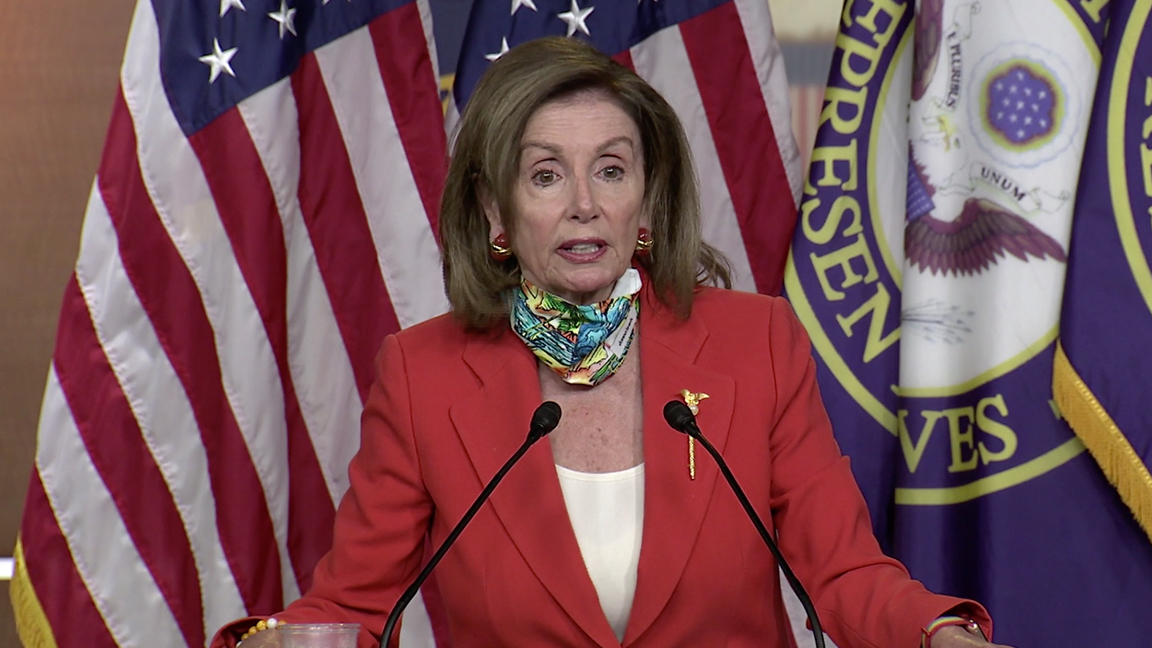Editor's note: This is the 84th article in the COVID-19 Global Roundup series. Here is the previous one.
00:38

COVID-19 has caused economic turmoil around the globe. The dilemma of moving into the next phase of reopening and the current surge in cases has trapped most of the countries. However, some have slowly lifted the lockdown measures on borders, cities, towns, stores, schools, and millions of businesses.
Is it too cruel to say the recent increase in the coronavirus numbers means countries should not move to the next reopening phase?
The U.S. presses pause
The U.S. is experiencing a miserable moment as the COVID-19 cases reach record-breaking numbers, especially in some hard-hit states. Rising cases across the country and concerns about the continued spread of the coronavirus draw serious worries in various states. While the nationwide race riots continue in major cities, the seven-day average of new cases increased by over 40 percent compared with a week ago. The reopening in many states was forced to pause, or readjust their original plans.
"Surge in cases was being driven by young people," said the head of the CDC, Dr Robert Redfield, adding that many people aged between 18 and 34 are testing positive, especially in the south and west of the nation. On Friday, the White House coronavirus task force warned younger people, who they say are "driving new infections" in the second wave. The positivity rates of testing could be an indicator of how widely the coronavirus spread in communities, which would be an important factor to refer to when rolling back the reopening policies.

Texas is one of the states reporting new record increases in coronavirus cases. /AP
Texas is one of the states reporting new record increases in coronavirus cases. /AP
On Saturday, Washington State governor announced that the state would halt some of its counties from moving into "Phase 4" of reopening, as the coronavirus shows signs of accelerating. In California, the positivity rates increased at a frustrating speed, and its neighbor state, Texas, also saw over 10 percent of the positivity rates of testing. On Friday, Texas set a record for coronavirus-related hospitalizations for the 16th consecutive day, with 5,523 patients currently being treated within the state. In Utah, coronavirus cases have been surging since most businesses were allowed to reopen in May. Governor Gary Herbert has paused lifting any more restrictions and has strongly encouraged people to wear masks.
Twelve states hit record highs in daily new cases, including Florida, Georgia, South Carolina and Nevada, who hit new highs in the daily number of cases reported, sending reopening plans into limbo. Some states regret allowing public places like restaurants, bars and clubs to reopen so early. Business owners hope to reopen their stores to see customers return as soon as possible to cut down on losses, but some admitted that they never expected the virus would spread so quickly.
01:19

The White House, however, has stressed that the situation is stabilizing in most states of the country. In a coronavirus briefing on Friday, U.S. Vice President Mike Pence hail what he said was the Trump administration's "truly remarkable progress in moving our nation forward," highlighting improvements in business recovery, job figures and retail sales. He on Sunday called off a planned campaign bus tour in Florida following a surge in confirmed cases there.
Asia still grapples with new clusters
South Korea has confirmed 62 additional cases of the coronavirus within 24 hours as the country continues to grapple with new clusters after easing social distancing rules. The additional cases reported Sunday took the total to 12,715, with 282 deaths.
The Korea Centers for Disease Control and Prevention said 11,364 people have recovered while 1,069 remain in quarantine for COVID-19 treatment. Per the data from the agency, 40 of the newly reported cases were domestically infected while the remaining 22 came from overseas. It says 26 of the 40 domestic cases were detected in the densely populated Seoul metropolitan area, after a lift of social distancing order.
Easing rigid social distancing saw a serious spike not only in South Korea but also in greater Tokyo, where 57 new coronavirus infections were reported on Saturday - the highest daily tally since the national state of emergency was lifted on May 25. So far, there have been more than 6,000 cases and 325 deaths. It also marks the second straight day that over 50 cases have been reported in the capital area.

Japan and Vietnam are easing travel restrictions between their countries. /Reuters
Japan and Vietnam are easing travel restrictions between their countries. /Reuters
The city made significant progress in strengthening its health care system by improving the testing capacity and adding more hospital beds for coronavirus patients. The daily increase of cases may be a sign of the second wave since business and social restrictions started easing in Japan late last month.
Singapore's tally of COVID-19 cases stands at 43,246 as of today. The country entered Phase 2 of its reopening on June 19, after a "circuit breaker" period to curb the spread of COVID-19. Singapore will hold general elections next month, but Prime Minister Lee Hsien Loong said in an announcement last week that it was "not clear when the pandemic would end and his government needed a fresh mandate to steer Singapore through the social and economic challenges it posed."
The COVID-19 situation in the city-state has recorded some of Asia's highest infection rates. Migrant worker infections have drawn great concern, while some fear the quarantine may affect voting.
03:08

Europe reopens widely amid uncertainty
Europe reopened more widely in recent weeks. People are allowed to get into attractions in Greece, enter shops in Italy, visit museums in London, and have drinks on the streets in Paris.
What casts a shadow on the reopening is German authorities' renewed lockdown measurement in a western region of about 500,000 people in the past week, after about 1,300 slaughterhouse workers tested positive for COVID-19. Schools and kindergartens in that region, which had been gradually reopened, had to close again until after the summer holiday.

People cross the border between France and Spain at Behobie, southwestern France, June 21, 2020. Spain reopened its borders to European tourists Sunday in a bid to kickstart its economy. /AP
People cross the border between France and Spain at Behobie, southwestern France, June 21, 2020. Spain reopened its borders to European tourists Sunday in a bid to kickstart its economy. /AP
Many European nations have prepared to open their borders next month. As summer is usually the seasonal peak of tourism in Europe, countries won't lose the opportunity to recover from one of the most significant downturns since the Great Depression.
So far, the EU has not come up with a list of "safe countries" from where travelers could visit Europe in July, as some member states said they required more time to decide, diplomats said Saturday.
On Friday, EU envoys agreed to propose a list of 14 countries to their national governments, with the United States, where the coronavirus is still spreading, to remain excluded.
WHO regional director Hans Kluge warned that "accelerated transmission has led to very significant resurgence that, if left unchecked, will push health systems to the brink once again in Europe." However, the balance between public health amid lethal COVID-19 fights and the devastating economic impact has pushed European governments to a desperate situation, seeing airlines, auto companies, food factories and tourism sagging.
(With input from agencies)